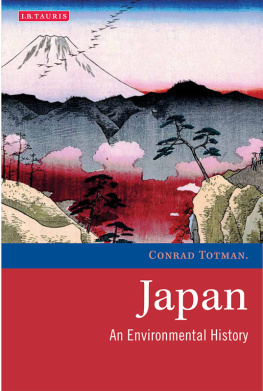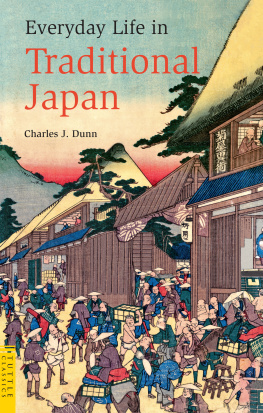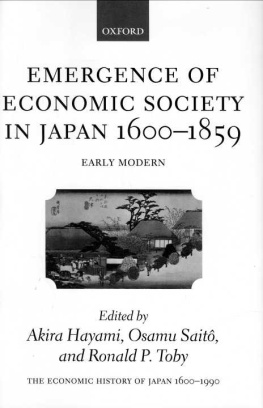Japanese Society and History

by John McKinstry and Harold Kerbo
California Polytechnic State UniversitySan Luis Obispo

Copyright 2012 Cognella, Inc. All rights reserved. No part of this publication may be reprinted, reproduced, transmitted, or utilized in any form or by any electronic, mechanical, or other means, now known or hereafter invented, including photocopying, microfilming, and recording, or in any information retrieval system without the written permission of Cognella, Inc.
First published in the United States of America in 2011 by Cognella, Inc.
Trademark Notice: Product or corporate names may be trademarks or registered trademarks, and are used only for identification and explanation without intent to infringe.
Printed in the United States of America
ISBN:

Preface
I n one sense, human societies are like individual human beings: Individuals are influenced by their environments and by events which happen in their lives. But while it is often possible to perceive and even to predict the effects of these factors, individuals who are subject to identical environmental and historical conditioningsiblings, for exampleoften end up with completely different personalities. And so it is with societies. Effects of some environmental factors are fairly obvious to see. For example, the Japanese have a healthy curiosity about the non-Japanese world, but at the same time, they tend to harbor attitudes that make it difficult for them to open up to a wider social reality. The United States, in turn, is a place where people become intimate very quickly, using first names almost at once and visiting the interior of homes of people they have just met. Both these traits have been forged to a great extent by geography. In Japan, peoples attitudes were formed by the relative isolation of their homeland before the modern period; in the United States, they were formed by the broad expanses of territory, which dictated that people were often set down among strangers and had to learn to interact quickly in order to survive.
However, no amount of information about geography, or history, or physical characteristics, or anything else, can ever give us a complete explanation of why a particular society is the way it is. The best we can do is to learn about these things and use them as a framework to slowly fill in a more complete picture, the only way we canby examining the important features of a society, one by one.
The American view of the world is what could be called Eurocentric. We study mainly European languages, travel to Europe, and tend to know about the history, geography and cultural traditions of that area of the world more than any other. If we were to ask a reader of this page to name three cities in Italy, it is likely that, with a brief moment for reflection, he or she could do so. How many average U.S. citizens can name three cities in Japan or China?
That kind of Eurocentrism is understandable. North America was populated by Europeans more than by people from any other place. Many of our institutions are modeled on European prototypes. We share a spoken tongue with a European nation. Europe is part of our history.
Knowing something about Europe, or for that matter knowing something about any foreign place, certainly adds to our level of sophistication. However, it turns out that many people in this country, although we refer to them as Eurocentric, really dont know that much about any other place. Recently, the United Nations surveyed randomly selected people in eight countries, asking a few questions about current events in areas around the world. Americans didnt do so well, coming in at 6th place, trailing people from Canada, Australia, Germany, England, France and Spain, and barely coming in ahead of respondents from the Philippines and Algeria. More bad news came in the annual report published by the Swiss World Economic Forum, which ranked Americans quite low in their international experience and understanding. Such ignorance harms American competitiveness in the world economy in many ways. But there is further damage. An inward-looking view of the world inhibits us from grasping important truths about our own society. Seymore Martin Lipset put in nicely in one of his recent books: Those who know only one country know no country.
This book is, in part, a second edition of an early book, Modern Japan (McGraw-Hill, 1998). It has been updated throughout, and several new chapters on earlier Japanese history have been added. As before, this book focuses on Japan, not because it is necessarily more important to be aware of that place than any other, but because it may help to make comparisons with ourselves and to broaden our understanding of how other people deal with the unavoidable tasks facing us all. As we say above, Europe is part of our history, but how about the present? The world is constantly changing. It is likely that some who read this have names emanating from some version of the Italian language, but in terms of such things as economic transactions and the exchange of technology, we have far more interaction with Japan and the rest of Asia than we do with Italy or any other place in Europe. It would be a good idea for Americans to begin to catch up with the reality of what places in the world are actually more strategic for our future, and to learn more about those places.
This writing is an attempt to give some basic orientation to Japan in a simple, non-scholarly way. We have avoided using citations whenever possible to make it as smooth a read as we can. You may be a little distracted by so many Japanese terms followed by the words in their native script. Most of you do not read Japanese, so simply ignore the Japanese writing. It is included for those students studying the language, who may wish to know how those specific vocabulary items are written in their native form. We should add here that all Japanese names are written Japanese-style, family name first. You may know him as Hideki Matsui, but in Japan, and in this book, he is Matsui Hideki.
We begin our exposition in the following pages with basic elements: The geography and physical characteristics of the Japanese and their homeland, a brief outline of Japanese history, and an examination of specific cultural features. We continue our foray into Japan with a look at Japans economy and governmental structure, finally ending by exploring some social problems and commenting on possible future paths for that nation.
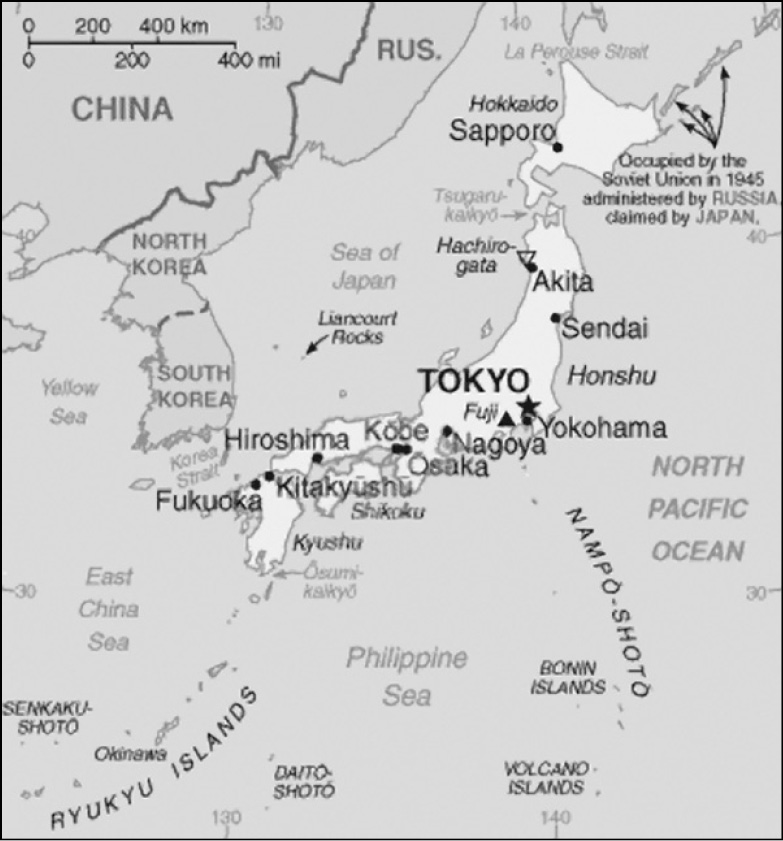
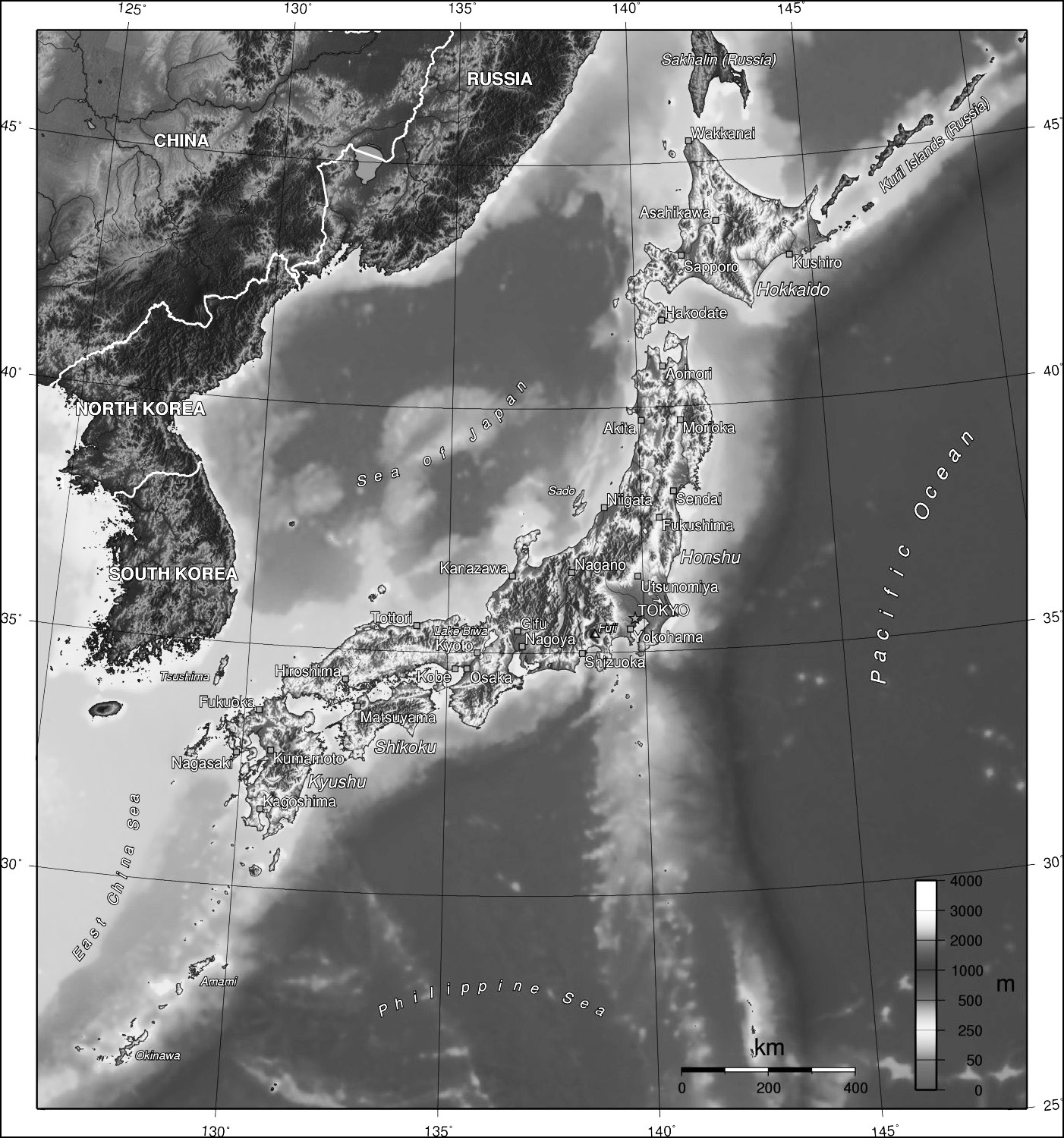
Chapter 1
The Place
E nvironment plays a significant role in the evolution of any culture. It provides challenges, creates restrictions, provides various degrees of access or isolation in regard to other peoples, and prior to modern technology, it determined when and how work could be done. Culture has to adjust to these realities, and in doing so, formulates, to a degree, the character of a given social tradition.
Consider the American prairie: Pioneers went to live there in comparatively small numbers, in comparison with the huge expanses of territory. American pioneers, as they moved into the wilderness, did not as often form village life as is the norm for other agrarian peoples; they tended more often to live in isolated households, often miles from their nearest neighbors. There were market settlements with stores and churches, but those places could not be traveled to easily or often. Most of the time, those people who settled the Midwest were on their own. The isolation of those people formulated, or at least helped to formulate, many of the characteristics so stereotypical of North American culture. These would include, among others, the famous pioneer self-reliance, an egalitarian view of society, an almost exaggerated sense of hospitality, independence, the unusually strong role of women in family life, and an indifference to, and even distrust of, distant governmental authority.
Next page


